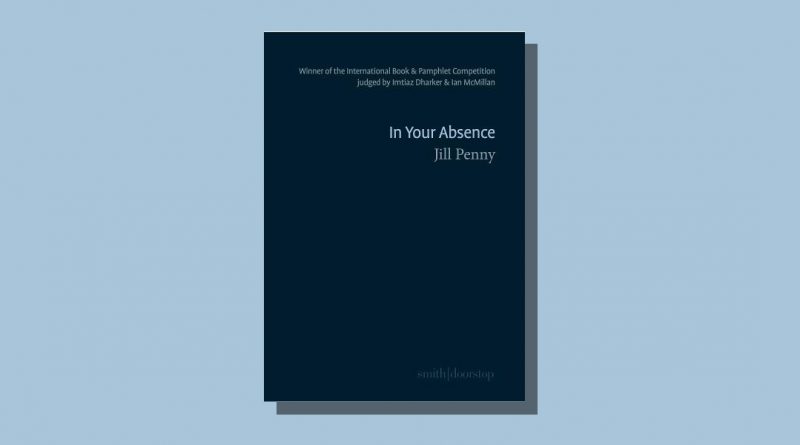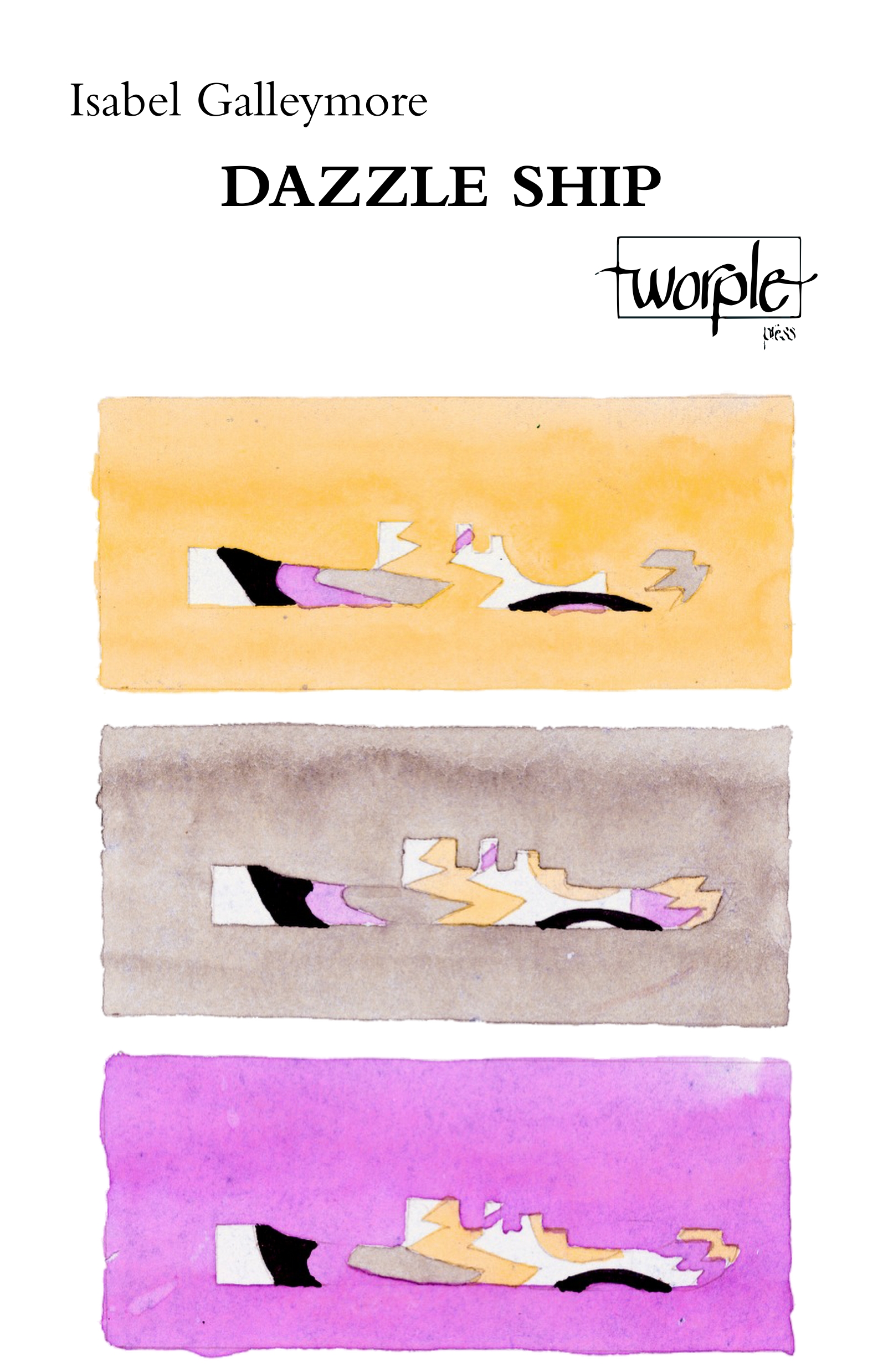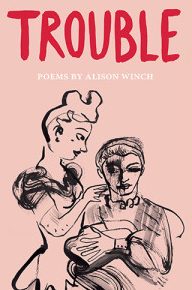In Your Absence by Jill Penny
-Reviewed by Jessica Traynor-
Winner of the Poetry Business’s International Book and Pamphlet Competition, In Your Absence is a striking pamphlet of poems which explore the aftermath of trauma, and the stages of grieving. Written in a fractured, almost hallucinatory style, these are many-voiced poems in which form and content marry to create an immersive experience. Unnerving visions and echoes bounce around in these poems, with the pamphlet’s title becoming a repeated refrain, alongside a series of images of everyday items which become shocking in the context of loss. In ‘Things I See on the Hard Shoulder’, the poet on their commute between home and hospital captures just how strangely the world is reframed in times of stress:
1. Shreds of sheeting grey as your skin whip-torn, forlorn, a vast ghost
flapping down the whole sad length of the M62
2. A never-ending diesel slipstream
3. A hard-hat, white, rolling like a skull
4. An oily rainbow a parallel universe a dark holding place a reverse
film on slippery celluloid we are the flickering ones streaming past each
other frame after frame.and three animals
I saw them love lying between us”
Here, the mundane is made uncanny, and the trope of a repeated number three is introduced, echoed later in poems which discuss the calming effect of counting and listing: “White Lies/ Feather/ Magic” and “Blood cells/ Hope/ White Light” as juxtaposed in the poem ‘House’ provide a stark and purposefully jarring contrast to the inkiness of the aforementioned poem.
Jill Penny comes from a theatrical background, and these poems demonstrate her adeptness with theatrical forms, often composed of fragmented dialogue in the vein of the late Sarah Kane. This post-dramatic approach is fitting, effortlessly evoking the confusing round of voices that punctuate hospital visits, and highlighting both language’s failures when faced with the task of processing death, and how grief rewires our brains. In ‘Dream I’, this phenomenon is explored through an immersion in white, the supposed colour of absence, interrupted by a host of voices wishing for the speaker’s attention:
Woman
The first white number according to the rules for colouring numbers
is 66. I find this significant in ways I can’t explain. Finding myself lost
in colour, especially the number blue, I wrap my arms in your aban-
doned sheets and fall asleep before it gets dark.Daughter
Dream poem.Woman
You kissed me in the blue lit public toilets
You were passionate as never so in life
You were eating peas out of the bird feeder
I said that was unhygienic.Man
Irrelevant.
In a book that offers no easy answers, the best the poet can suggest is a synthesising of a personal symbolism that serves as a testament to loss and love. In ‘Garden’, the penultimate poem in the first part of the pamphlet, the speaker tries to track the presence of the one they’ve lost, and can only leave us with a perpetually unanswered question:
Your presence lingers
on the lane
around the piano
behind the silent sewing machine
through each season
of this terrible year
in the white flowers
and objects I reflect on
in my garden.How can you not be here
in this wild white abstraction?
In Your Absence is a memorable excavation of the mysteries of death, populating its wild white abstraction with details that build a testament to a life lived, and the sadness of losing it.





